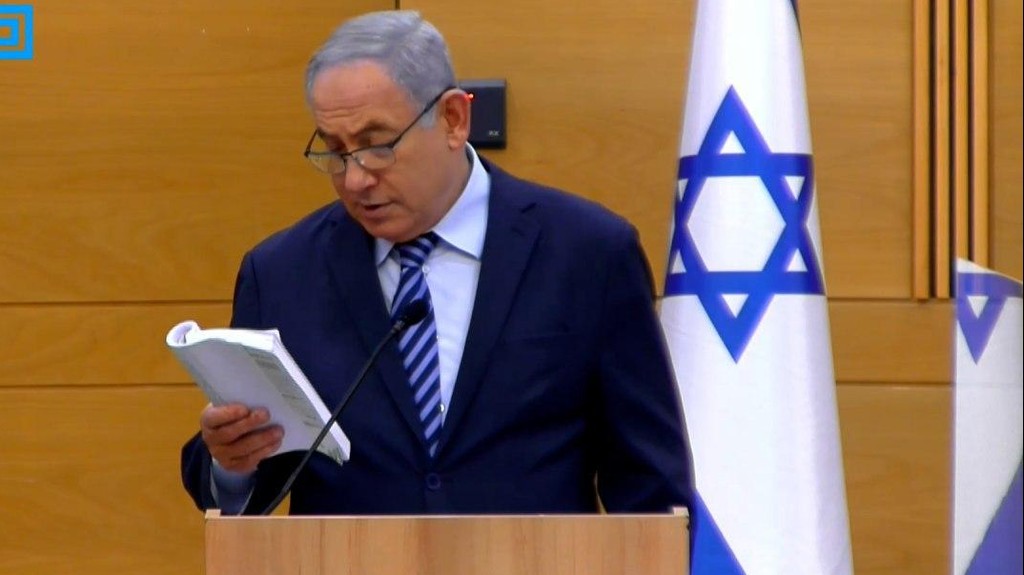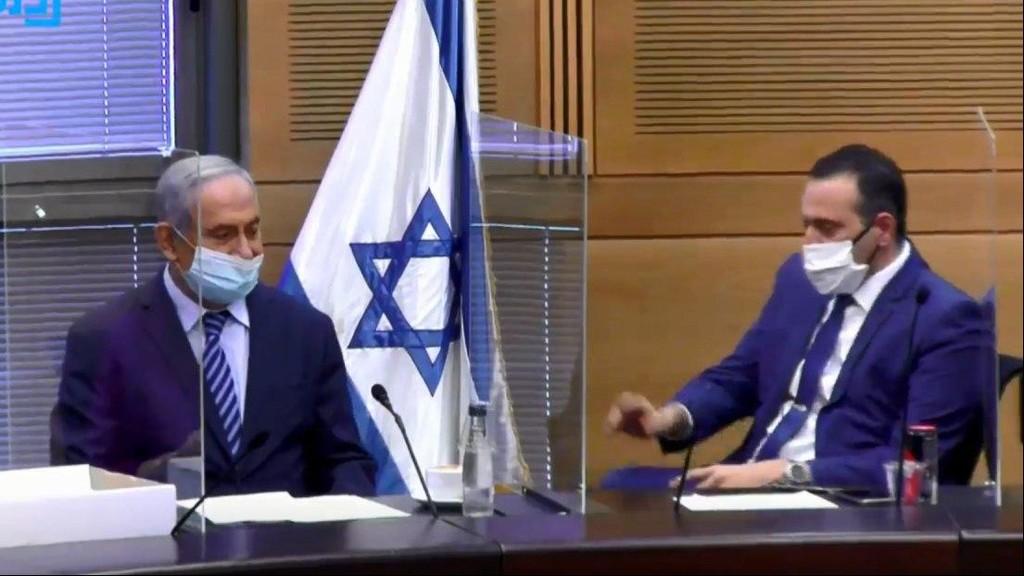Prime Minister Benjamin Netanyahu on Monday reiterated his opposition to a biennial state budget, saying such a relatively long-term financial plan would lead to significant cuts that would hinder the economy's ability to bounce back from the coronavirus crisis.
"We must twig the meaning of approving a biennial budget. It means we'll have to deal with substantial financial cuts," said Netanyahu at the beginning of a Likud faction meeting. "This is the exact opposite of what should be done. This is not the time for cuts, this is the time to allot funds to the people."
2 View gallery


Prime Minister Benjamin Netanyahu during Likud faction meeting
(Photo: Knesset Channel)
We must continue for the welfare of the citizens of Israel, to open the education system, to transfer much-needed funds to the healthcare system – we'll achieve this with an immediate budget."
The state budget has become a highly contested issue within the coalition, as Netanyahu's main government partners, the Blue & White party, insist on a biennial budget as was agreed upon in the coalition deal between the centrist party and the premier's Likud party.
Netanyahu asserted he was not interested in dragging Israel into another election, the fourth in just under 20 months.
2 View gallery


Netanyahu during Likud faction meeting and coalition leader MK Miki Zohar
(Photo: Knesset Channel)
The Likud chairman also spoke about his intentions to extend Israeli sovereignty over Jewish West Bank settlements and the strategic Jordan Valley according to U.S. President Donald Trump's Middle East peace plan, saying the move is not off the table and is currently being discussed and prepared by Washington officials.
Deliberations on the execution of the plan should have been brought before Knesset on July 1 but were put on the back burner ever since after both Israel and the U.S. experienced major coronavirus outbreaks.

